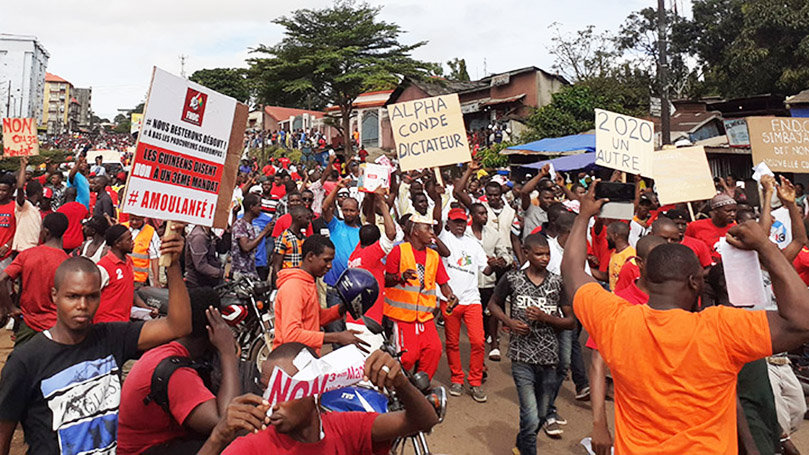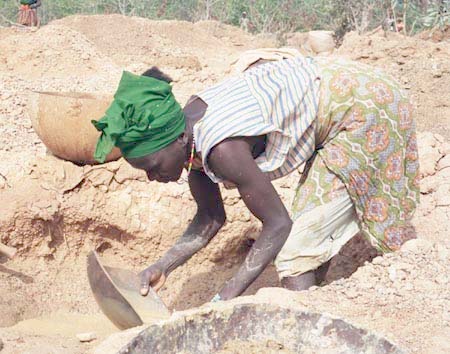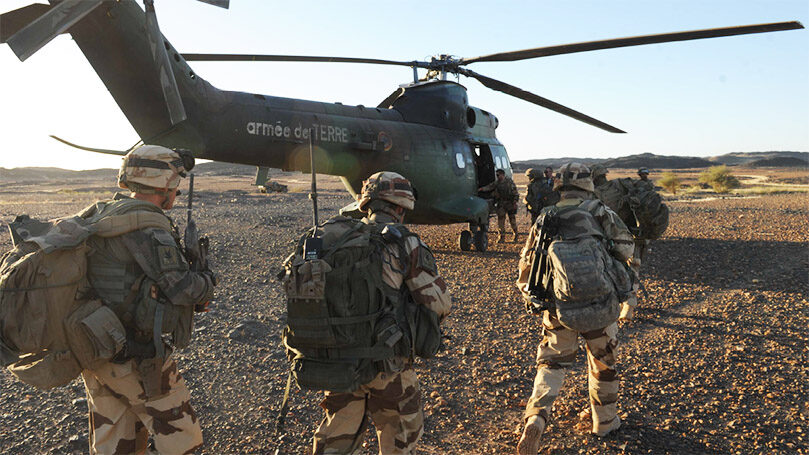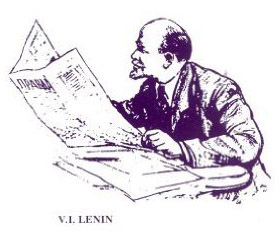
Recently there has been a series of military coups d’état in the Sahel region of West Africa, and in Sudan further to the East. Civilian government was overthrown in Mali in August of 2020, when President Ibrahim Boubacar Keïta was replaced by a military junta. In September of 2021, President Alpha Condé of Guinea was ousted and arrested by the army, and in Burkina Faso in January of 2022, President Roch Marc Christian Kaboré was given the heave-ho in the same manner. In each case, the military appears to have had considerable popular support in these actions, due to the unpopularity of the ousted regimes. There was a slightly different scenario in Chad. In April of 2021, President Idriss Déby, himself a military man who had taken power through a coup, was killed in battle while fighting armed Islamist militants. In an apparent violation of the constitution, he has been replaced by a transitional governing council headed by his son, who is also a general. As in the other three countries, there is supposed to be an eventual transition to constitutional democratic rule, but we shall see.
Just this past February, there was also an attempted coup in Guinea Bissau, but this failed. On March 30–31, 2021, armed insurgents tried to overthrow the government of Niger, but this coup failed too.
This situation is hardly new. Since gaining independence from France, the countries of the Sahel have seen many bouts of political instability, which have occurred in the context of extreme poverty of these nations and of their peoples. To this now has been added the repercussions of the overthrow of the Libyan government by NATO in 2011, and the boost that event has given to extremist Islamic insurgencies in the Sahel area and beyond. The impact of the Covid pandemic has added to the instability and economic distress.
 Not coincidentally, the area is rich in resources, especially of the subsoil variety—items much in demand by industrialized countries to run their advanced production systems. Guinea is rich in bauxite (aluminum ore), oil, gold, diamonds, and other things. Burkina Faso, the world’s fourth largest gold producer, is also rich in copper and zinc. Though much of the Sahel region suffers from severe desertification and resulting food insufficiency, Burkina Faso has had some success in the production of sorghum. Mali has 10 billion known metric tons of oil shale awaiting exploitation, plus quantities of gold, zinc, uranium, bauxite, phosphates, and other mineral riches. Chad has the dangerous luck of having petroleum, as well as gold, natron, and uranium.
Not coincidentally, the area is rich in resources, especially of the subsoil variety—items much in demand by industrialized countries to run their advanced production systems. Guinea is rich in bauxite (aluminum ore), oil, gold, diamonds, and other things. Burkina Faso, the world’s fourth largest gold producer, is also rich in copper and zinc. Though much of the Sahel region suffers from severe desertification and resulting food insufficiency, Burkina Faso has had some success in the production of sorghum. Mali has 10 billion known metric tons of oil shale awaiting exploitation, plus quantities of gold, zinc, uranium, bauxite, phosphates, and other mineral riches. Chad has the dangerous luck of having petroleum, as well as gold, natron, and uranium.
The richness of the land contrasts grotesquely with the poverty of the people. In terms of per capita gross national product calculated by the Purchasing Power Parity method, Guinea is best off of the four, at $2,731 per capita. Mali comes next, with $2,649, then Burkina Faso with $2,334, and finally Chad with $1,621. It is no consolation that most of the countries even poorer than these three are also in Africa (these are all 2021 figures from the International Monetary Fund).
Yet some of the richest countries in the world are far worse off in terms of such natural resources. Several of the countries that have the highest gross domestic product per capita are micro states which produce practically nothing; their wealth derives from their being tax havens for the corporations and ultra-wealthy of the whole world.
This state of affairs can be said to obtain in almost all sub-Saharan African countries, and in other parts of Africa, Asia, and Latin America as well, The lands are fabulously wealthy in resources but are characterized by extreme poverty of the toiling masses. Weak states are unable to cope with armed insurgencies by reactionary, militant, religious movements, and also with imperialist interventions often allied with their own predatory elites.
In the case of the former French colonies in the Sahel region, there are long-standing complaints about the domination of local economies by France. For example, four of the countries impacted by the recent coups and attempted coups, Mali, Burkina Faso, Niger, and Guinea-Bissau, are tied to the economic policies of France by the fact that they all use the West African CFA franc as their currencies, and the rules for this require that 50% of their reserves have to be held by the French national treasury. Many in the region see this as detrimental to the African countries and as a way for France to keep control of its former colonies in the area (the late president Déby of Chad was especially vocal on that point). Many remember the events of 1994, when France devalued the currency, severely harming the ability of the CFA Franc countries to retain public services.

There is also controversy about the French military presence in the area, especially in Mali. After the United States, France, and NATO overthrew the Libyan leader Muammer Gaddafi in 2011, a wave of unrest spread throughout the whole region. Internal fighting in Libya opened up big opportunities for various extremist groups whose agendas did not stop at the Libyan borders but rather have spread chaos and bloodshed throughout the whole of North and West Africa. The destruction of the once united Libyan state and army also made available large amounts of weaponry which have been used to arm insurgencies in numerous states, including most of those affected by the regional coups. In tandem with Al Qaeda and other extremist jihadi armed groups, new ethnic conflicts have been set off, with a Tuareg insurgency in Mali and fighting between Muslim ethnicities and the non-Muslim Dogon people in Mali as well. And the deteriorating security situation has also negatively affected the standard of living of the whole area.
Anti-French sentiment has been rising in Mali and regionally, and France has now decided to withdraw its troops from Mali. It appears that some of their functions will be taken up by a Russian mercenary outfit, the Wagner group. The appearance of this group in Mali and several other African countries has the French, U.S., and other “Western” governments more worried than the fact that millions of people in the Sahel region don’t have enough to eat and can’t see a doctor when they get sick. Likewise, the main worry in European ruling-class circles about the suffering and instability in the Sahel is that it drives large numbers of political and economic refugees across the Mediterranean and into Western Europe. The recent huge outpouring of sympathy for Ukrainian refugees contrasts sharply, in African eyes, with the shabby way that these other refugees are treated in France, Italy, and the other European countries.
And the United States by no means has clean hands in such matters. In the midst of the publicity and support given to the Ukrainian refugees, the U.S. government continues to deport thousands of Haitian migrants and refugees at a rapid pace, even though a violent, mortally dangerous situation exists in Haiti too.
What is the solution?
None of the entities in the Sahel — the corrupt and ineffective civilian governments, military coup leaders, French military, U.S. Africa Command (AFRICOM), or the Russian Wagner group — can possibly solve the situation of the Sahel countries’ instability because none of them deal with the central issue, namely, the unfavorable trade position of countries like Mali, Burkina Faso, Guinea, Chad, and their neighbors. Solving this problem would entail a radical restructuring of the economies of the region, which in turn would have major implications for the interests of transnational monopoly capital and the imperialist states.
Now and then, such radical changes have been tried by African government leaders themselves. The most memorable, probably, was the short but eventful presidency of Burkina Faso by Thomas Sankara. Himself a military man who took power in a coup in 1983, Sankara, often referred to as “the Che Guevara of Africa,” initiated policies designed specifically to break French imperialist domination of his country’s economic and political affairs. Despite his government’s success in improving the living standards of the Burkinabé people without asking for foreign aid handouts, he was overthrown and murdered in October 1987 by fellow army officers who cited as their motive improving the country’s deteriorating relationship with the former colonial power, France.
Sankara was by far not the only African leader to try such a radical change of course, and not the only one to die in the attempt, with the hand of imperialism directly or indirectly involved in the violent overthrow. One only has to recall the role of imperialism in the overthrow and murder of Patrice Lumumba of the Democratic Republic of the Congo in 1961, and the successful CIA overthrow of Ghana’s Kwame Nkumah in 1966. In each case, what was at stake was U.S. and European monopoly capital’s ability to profit maximally from the African countries’ natural resources. Each of the overthrown leaders was replaced by someone very friendly to imperialism. And the fingerprints of U.S., French, and other security agencies were all over the political crime scenes.
We in the United States have an important solidarity task right here in our own country. The central task is to oppose as actively as possible the imperialist efforts to maintain control of the economic resources of the poorer countries of the world—in Africa, Asia, Latin America, or wherever.
 To do this, we must first understand the nature of imperialism and then share that understanding with millions of people in our own country. Imperialism is rooted in the economics of monopoly capitalism, as Lenin so cogently argued in his 1916 book Imperialism: The Highest Stage of Capitalism. There have been changes in the way imperialism operates since Lenin wrote that book, but the centrality of transnational monopoly capitalism in the structure of imperialism has not changed.
To do this, we must first understand the nature of imperialism and then share that understanding with millions of people in our own country. Imperialism is rooted in the economics of monopoly capitalism, as Lenin so cogently argued in his 1916 book Imperialism: The Highest Stage of Capitalism. There have been changes in the way imperialism operates since Lenin wrote that book, but the centrality of transnational monopoly capitalism in the structure of imperialism has not changed.
In other words, imperialism today is the same thing as capitalism today. It is not just a matter of countries invading or bombing each other, it is full-spectrum control of the economic life of the poorer countries especially.
We must also understand, and convince others in this country, that workers here face the same ruthless enemy that workers in the poor countries face—the monopolies, their political allies, and their military enablers. This understanding will lay the basis for real working-class solidarity with the people of countries such as Mali, Burkina Faso, Niger, Guinea, Chad, Guinea Bissau, and many others.
Racist arguments that “those African people simply can’t govern themselves” must be firmly opposed. False dichotomies such as the “authoritarian” socialist countries versus the “Western democracies” must also be demystified. The “Western democracies” are complicit, and in fact instrumental, in the suffering of the African people, and socialist countries like Cuba are playing outstanding constructive roles.
As Marx and Engels put it in the Communist Manifesto: “You have nothing to lose but your chains, and you have a world to gain: Workers of all Nations, Unite!
Images: Protest against President Condé of Guinea, photo by Aboubacarkhoraa, Woman working in gold mine in Guinea, Laura Lartigue, Wikipedia (public domain); French troops in Mali, 35th Parachute Artillery Regiment, Wikipedia (CC BY-SA 4.0).


 Join Now
Join Now